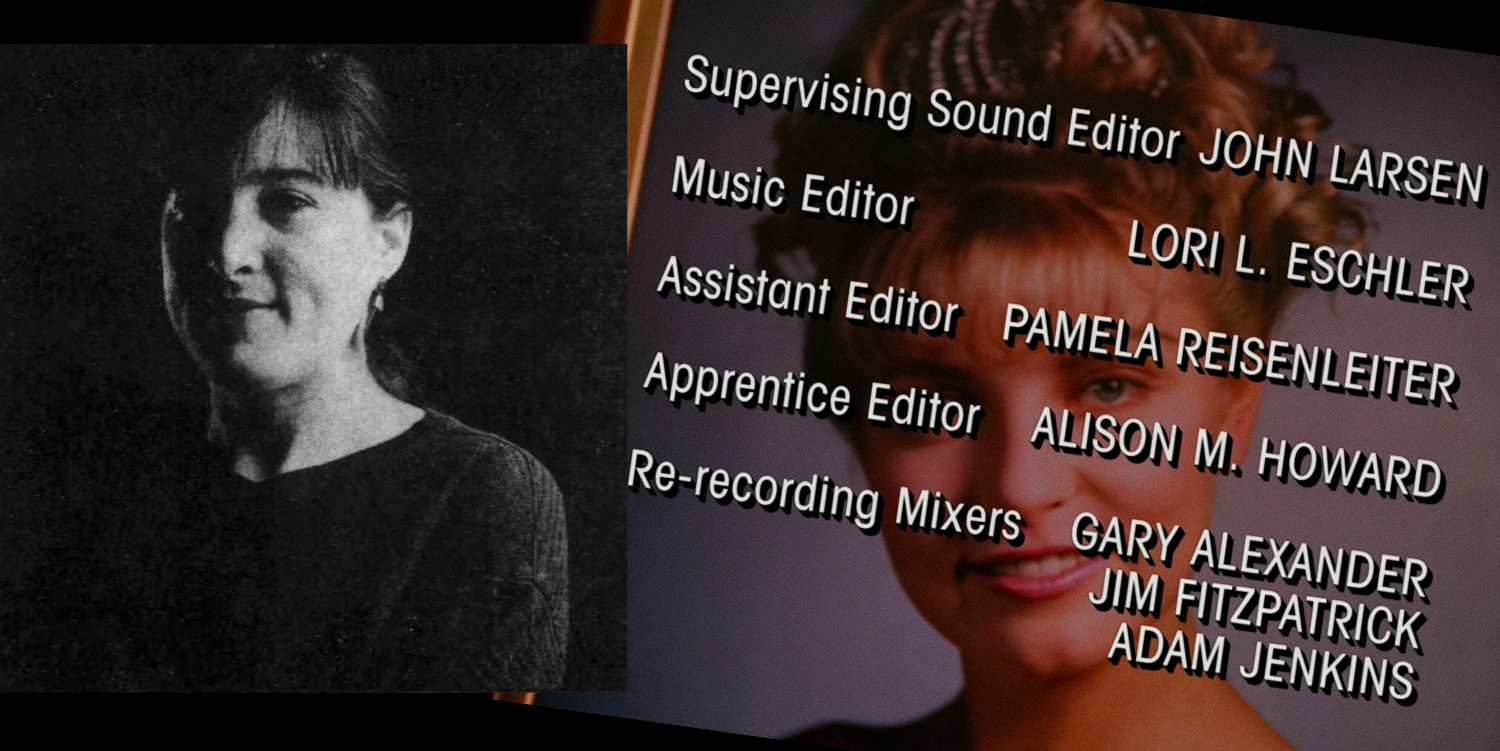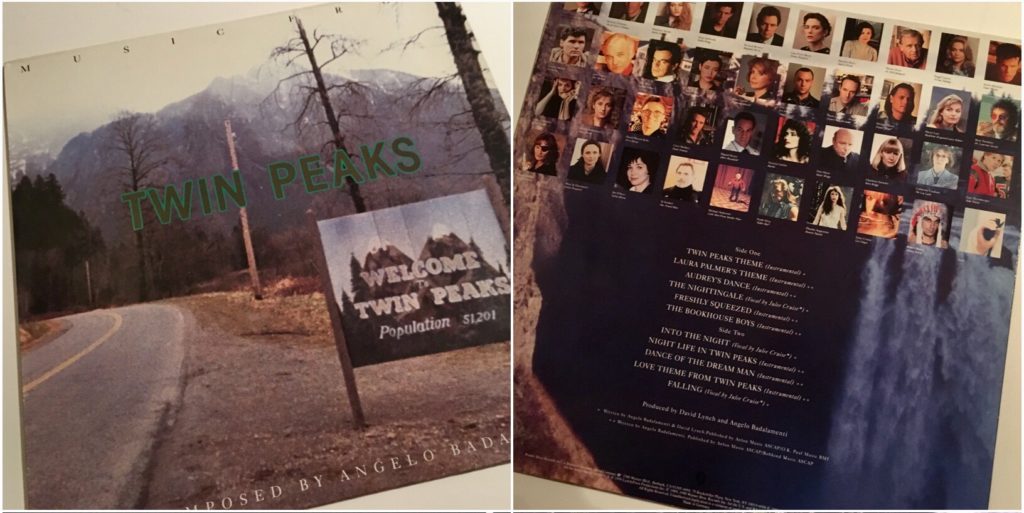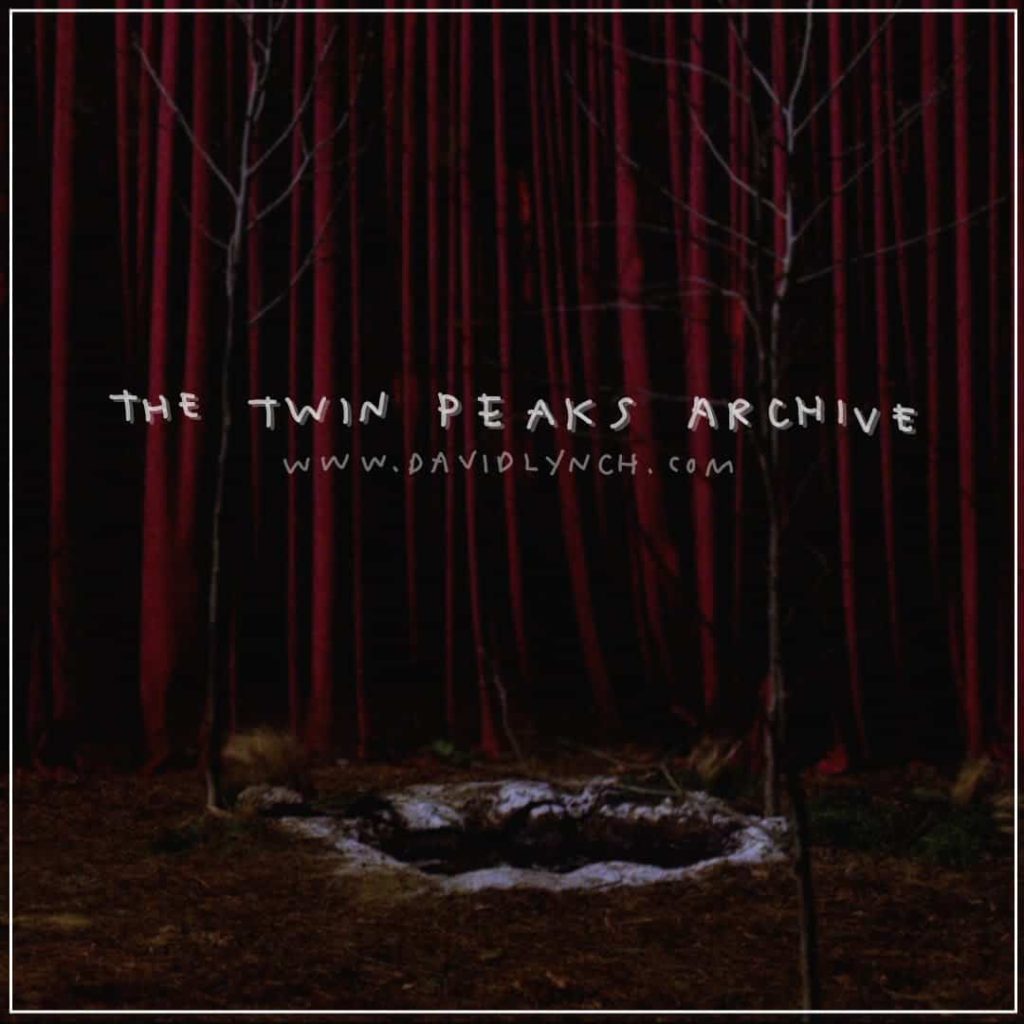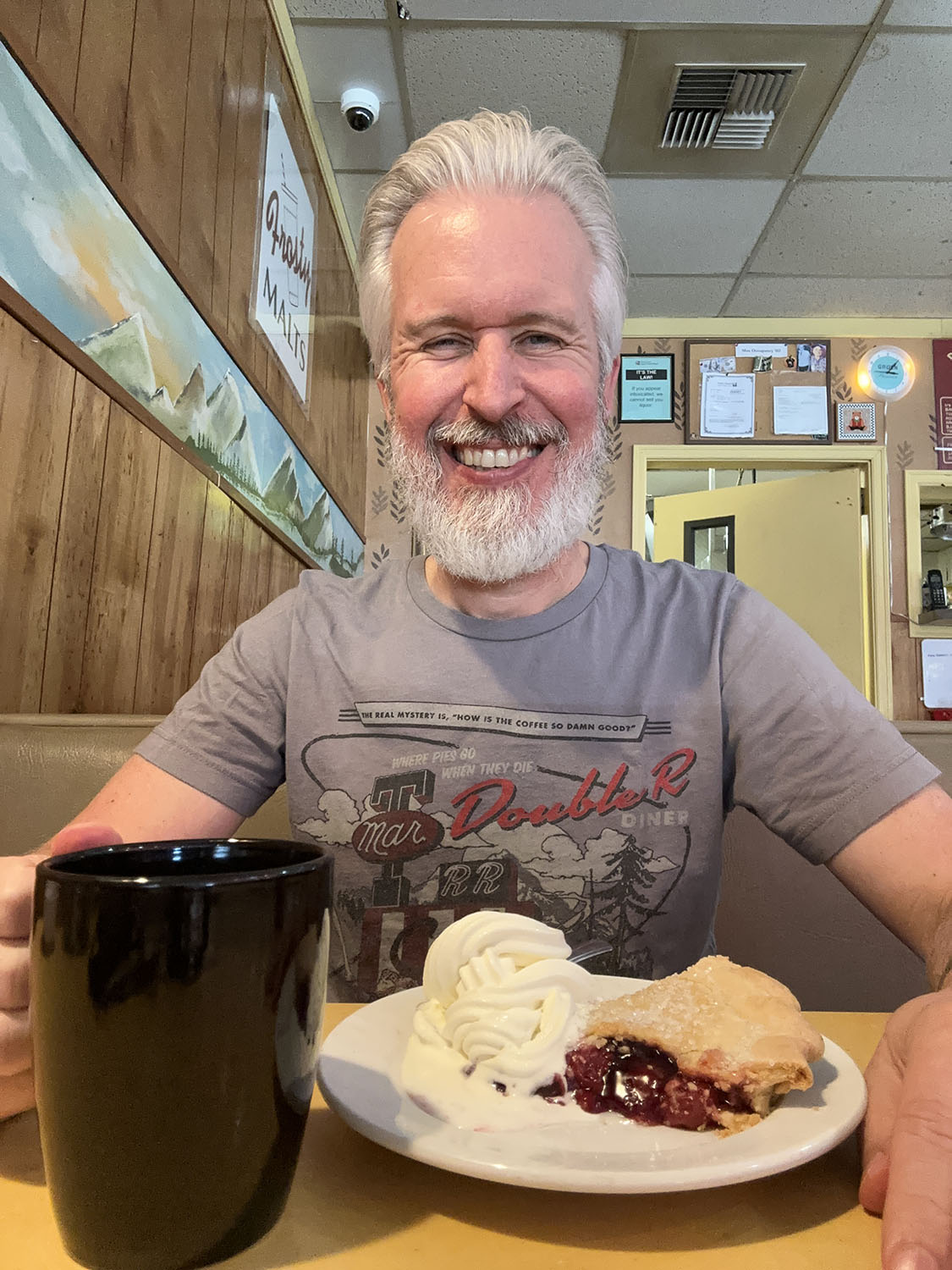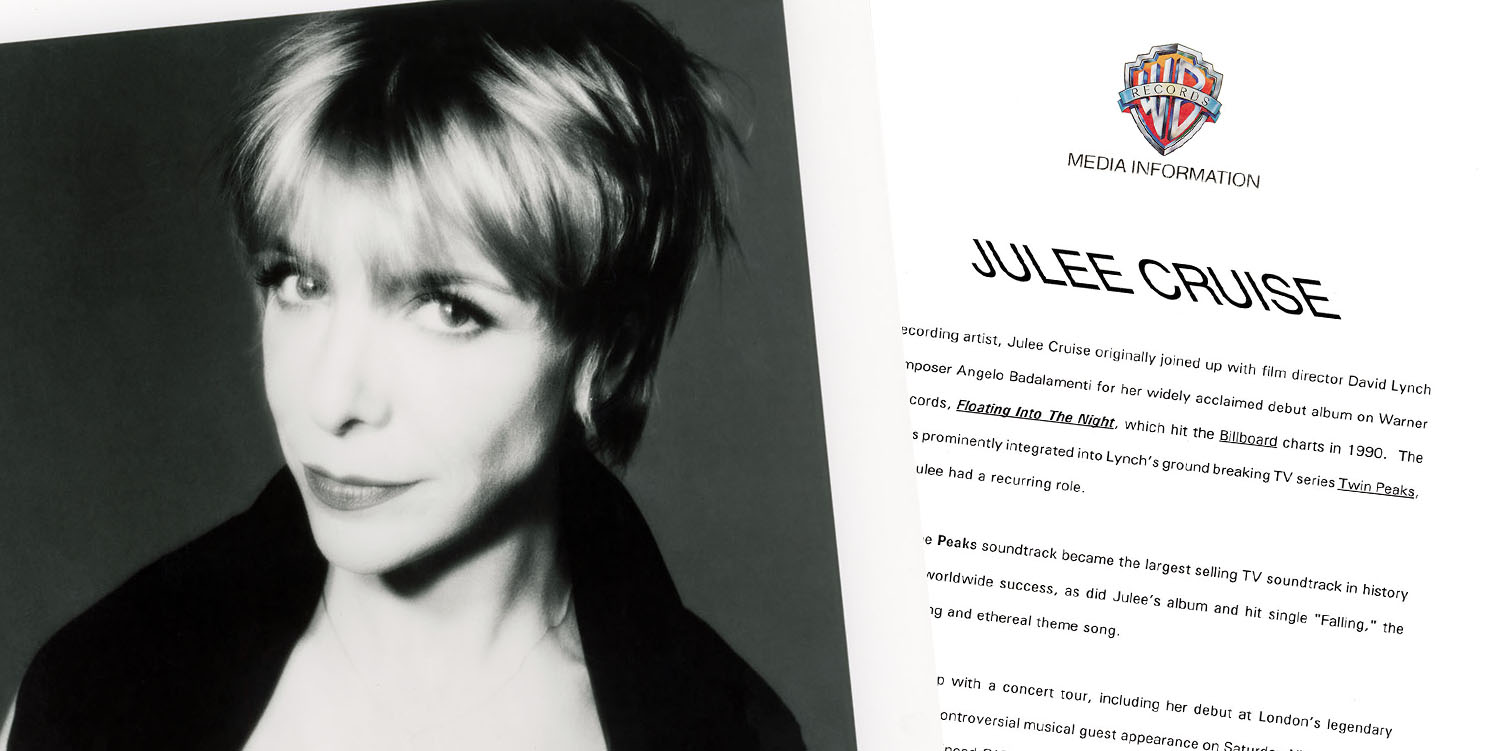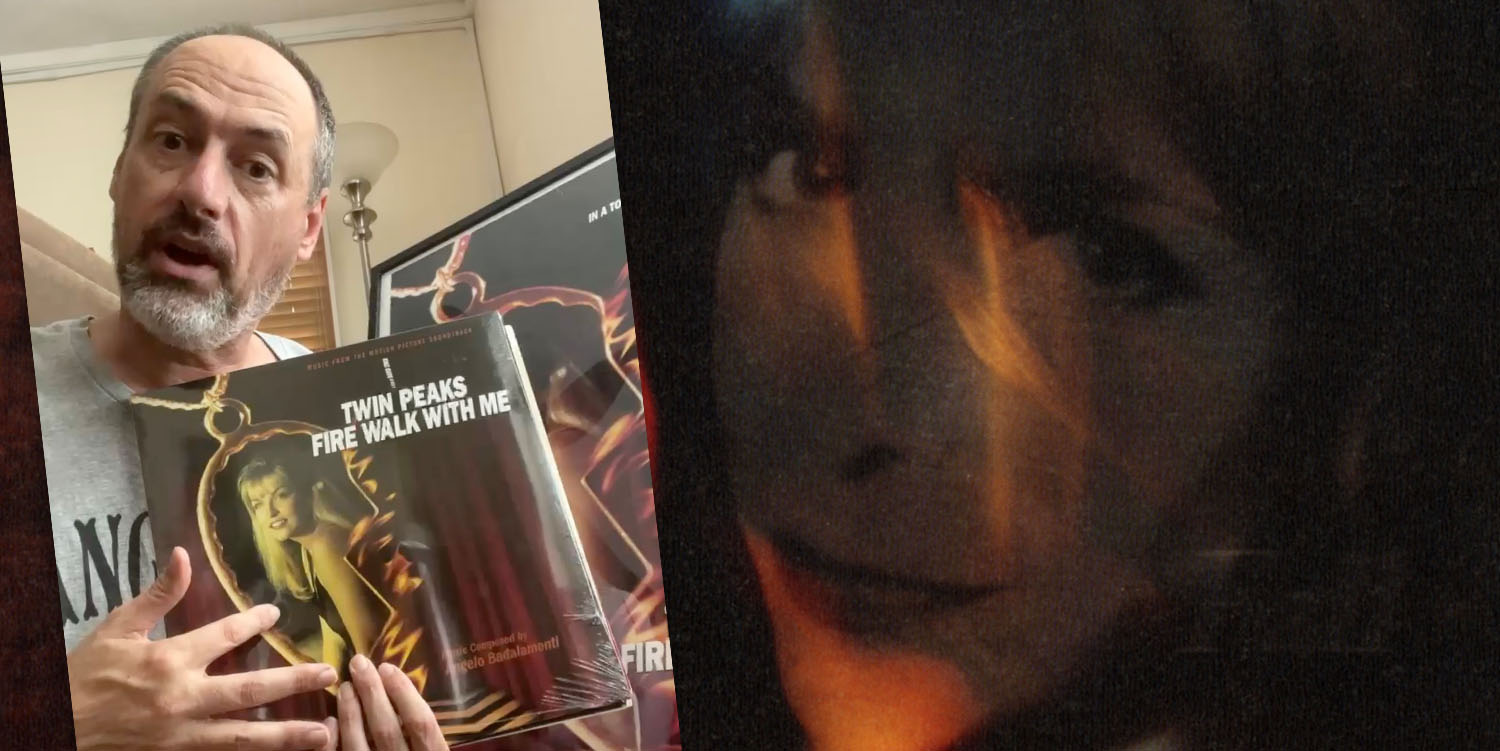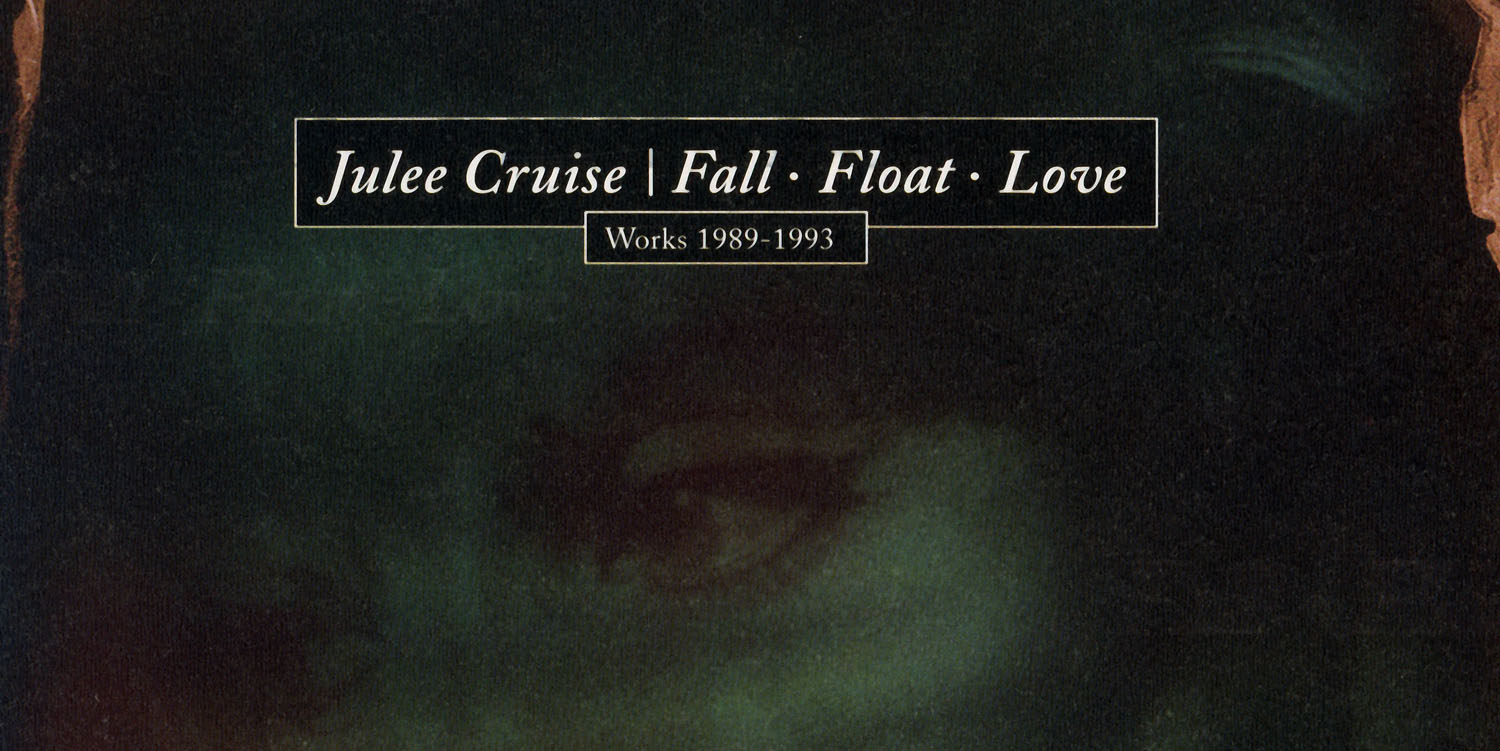On this 34th anniversary of Twin Peaks, I’m singing the praises of an unsung hero of David Lynch and Mark Frost’s wonderful and strange show – Music Editor Lori Eschler. I’ve long adored Angelo Badalamenti and Julee Cruise’s music as the soundtrack was my gateway the series. While researching a number of various things, I found an article from The Billings Gazette about Ms. Eschler Frystak published on April 8, 1990.
BILLINGS TO TWIN PEAKS VIA HOLLYWOOD
Caught up in the excitement of the Twin Peaks pilot debut on April 8, 1990, reporter Mary Pickett published a short article about Billings, Montana native Lori Eschler.
Eschler is the daughter of Mary Lynn and Jim Eschler of Billings. She graduated from Billings Senior High School (class of 1978) and Montana State University in Bozeman. She was 30 years old when she served as Music Editor for the show.
Living in Los Angeles since 1986, it was her friend Jon Huck, who served as the sound recordist for the pilot, who introduced Lori to fellow Montana-native David Lynch. According Pickett, the two didn’t know each other was from Montana during the interview.
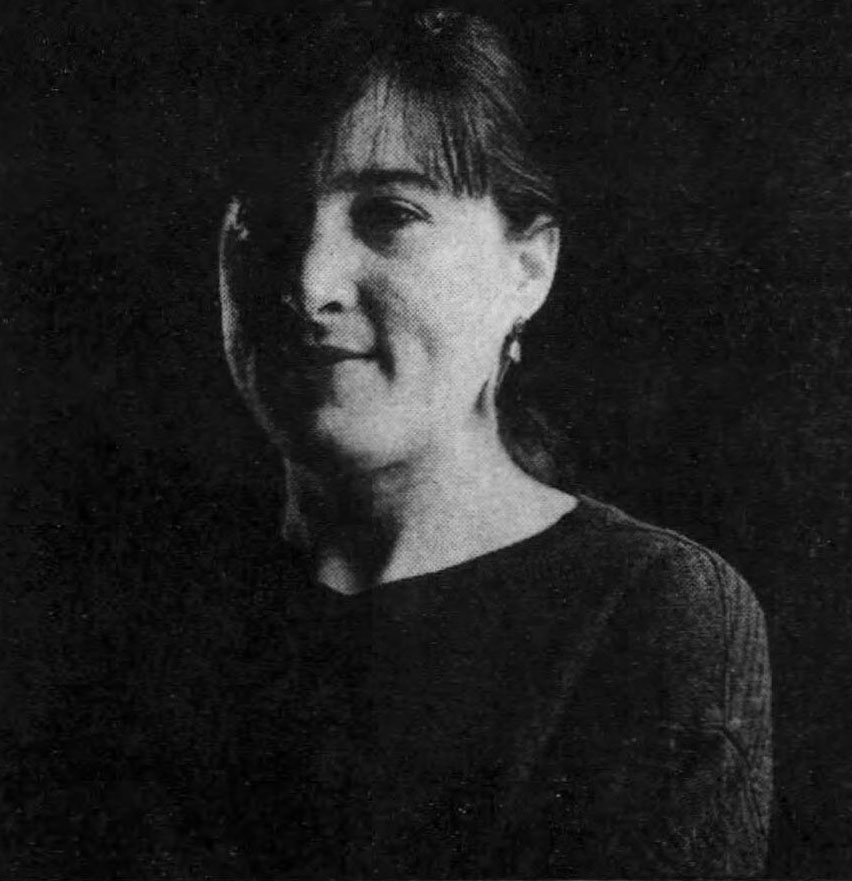
She would later confess to Brad Dukes for his book “Reflections” that she wasn’t sure exactly what she would be doing when Lynch hired her.
“David talked to me about wanting to take a new approach to the music,” she explained. “I thought that sounded intriguing. I didn’t really know what I’d be doing, but I knew I’d figure it out if he hired me. After a while, he smiled and said, ‘Well, you better get started, Lori. Don’t let any grass grow!'” (“Reflections, page 136).
Lori spent four months working with the late composer Angelo Badalamenti “weaving” his score into the action of the plot.
“The music is used like a sound effect to enhance the drama,” explained Eschler.
She remembered finishing episode 1.007 from the first season before the pilot had even aired on TV. This would have been toward the end of 1989 and beginning of 1990.
“I remember finishing the final episode of the first season,” Eschler continued in Dukes’ “Reflections.” “Nothing had aired on TV yet. Not even the pilot. Everyone worked their asses off that first season. We were on the dub stage with David [Lynch] and Mark [Frost] and some of the producers and most of the postproduction crew. After watching the final playback, we all just looked around at each other. We all knew it was so different and weird and very special and everyone was really proud. David said something like, ‘Well, I hope they like it.” (“Reflections,” page 112)
Like it they did. Once the pilot aired on April 8, 1990 via the ABC Television Network, Twin Peaks mania would take the world by storm.
“PAINT IN AND AROUND THE BUSHES WITH IT”
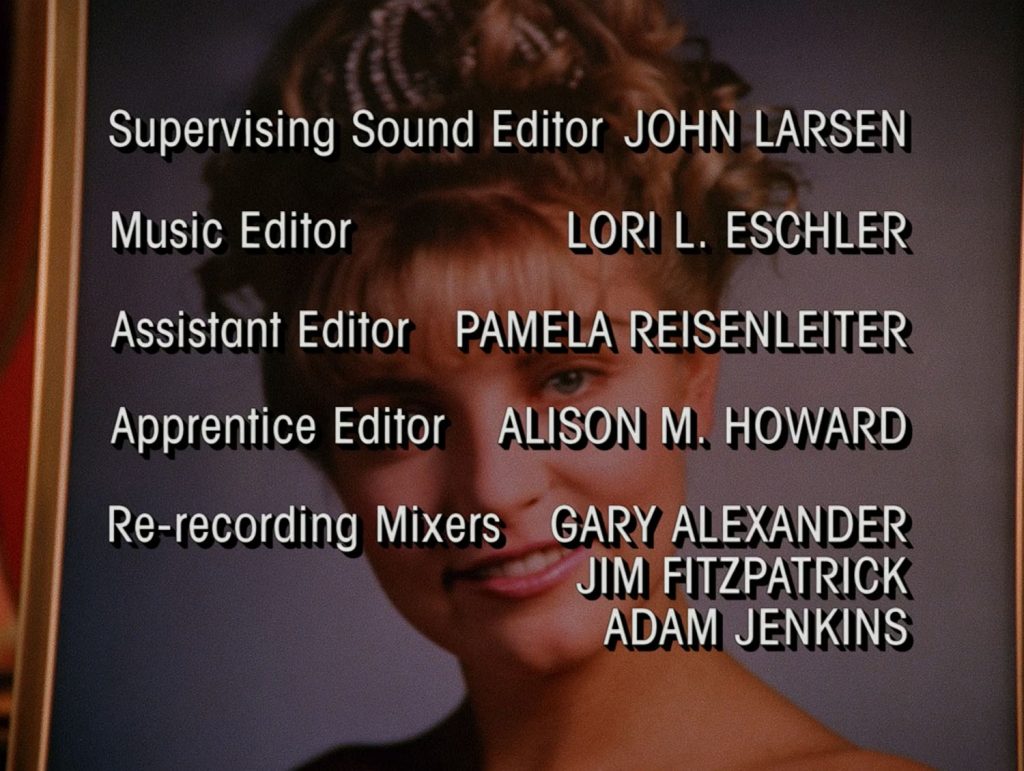
Lori’s on screen credit first appeared at the end of episode 1.001 as “Music Editor.” She told John Dentino from L.A. Weekly in an interview on November 29, 1990 that Lynch talked in visual terms when describing how to make the music work.
“When he first told me how to use the music within the series, he told me to just kind of ‘Paint in and around the bushes with it,'” Eschler says. “When he gives me ideas on how to make the music work, he talks in visual terms, like a painter. He never talks about melody or any kind of musical terms. He talks in emotions and visual things.”
Lori was the person who created those dark low-frequency rumblings heard in the series (particularly in his directed episodes).
“David likes the real low-frequency stuff that kind of rattles you,” Eschler continued in L.A. Weekly. “For the darker music there are artificially slowed-down orchestra sounds. We’re always on the fence between sound effects and music.”
It was David’s idea to create “mystery loops,” the manipulated sounds from Badlamenti’s soundtrack to create the ominous, low-rumbling sounds.
“David called the orchestra samples I made ‘mystery loops,'” continue Lori to L.A. Weekly’s Dentino. “He likes to just throw them in and superimpose them, use two at a time playing against each other. A lot of it is accidental. David believes in a certain synchronicity that happens when you just throw in fragments.”
Lori explained more about her role as music editor to Brad.
“I was the music editor, although the sound and music got pretty well mixed up together and I worked really closely with the sound editors,” said Eschler. “I was a little overwhelmed by all the variations of the music themes. Once I got to know the material I would sort of stash things and not use them for a while to try to keep things fresh sounding. I had free reign with the music, based on the directors’ notes. I had a blast working with the music to play up the little nuances.” (“Reflections,” p. 137)
Lynch was very hands on during the sound mix for the first season according to Eschler.
“For the first half of the first year, David was there almost all of the time, sifting through, adjusting, and sometimes eliminating sounds and music. We didn’t get a lot of sleep that first season.” (“Reflections,” p. 138)
NOMINATED FOR AN EMMY
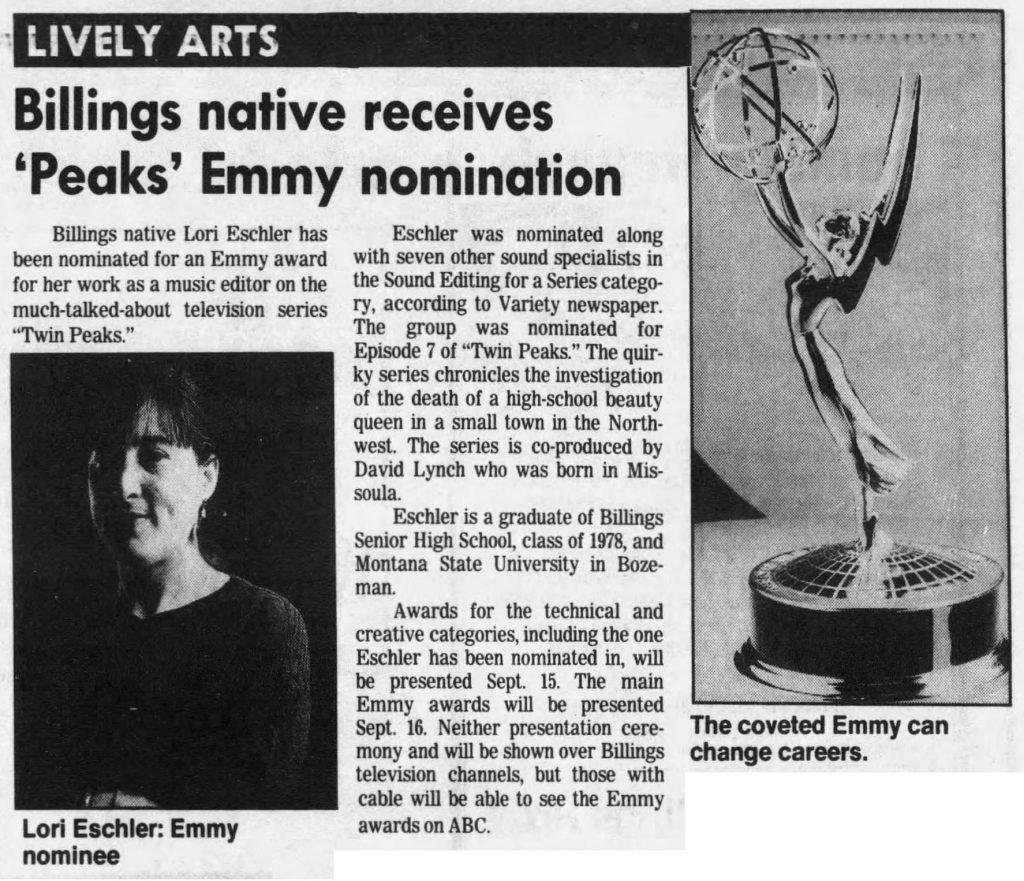
The Billings Gazette would publish another article several months later when she was nominated for an Emmy in the Sound Editing for a Series category.
She joined several others for their work on episode 1.007 of Twin Peaks, which included Fred A. Cipriano, Sound Editor; John Haeny, Sound Editor; John Larsen, Supervising Sound Editor; Albert Lord, Sound Editor; Steven Patrick McCormick, Sound Editor; Bruce P. Michaels, Supervising ADR Editor; Matthew Sawelson, Sound Editor.
The Emmy awards were presented on September 15, 1990, but the Twin Peaks crew lost to Star Trek: The Next Generation.
“FALLING” WAS LORI’S FAVORITE TRACK
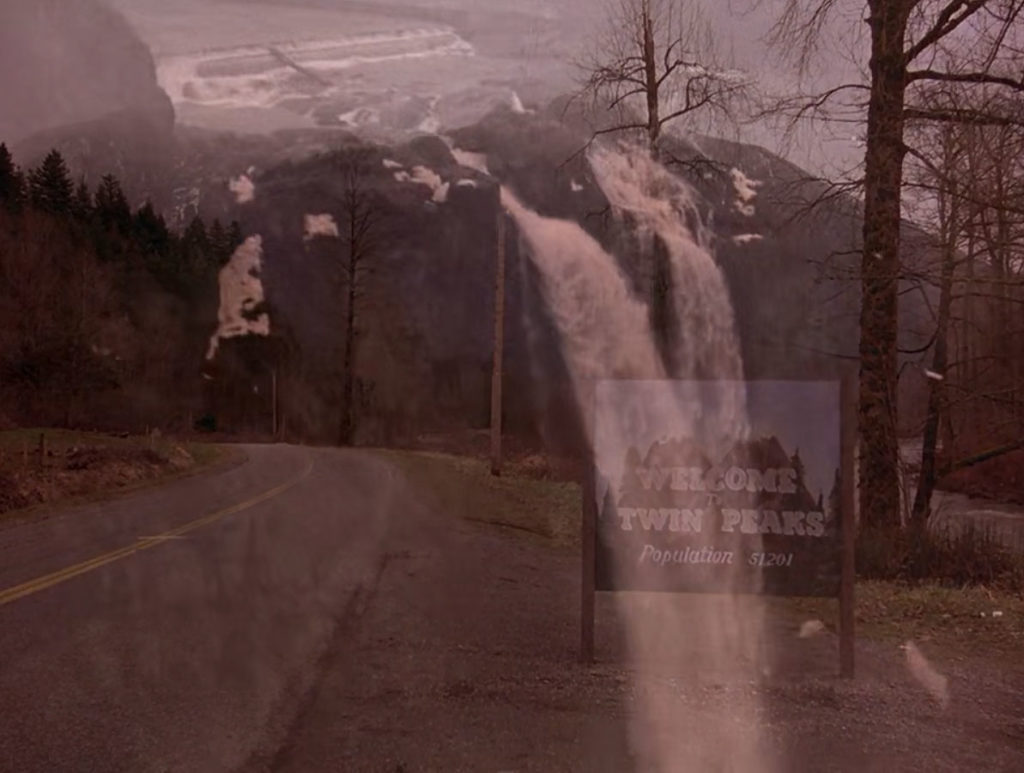
Lori told Brad Dukes that her favorite track was “Falling.”
“My favorite track is still the theme used for the main title and the song “Falling.” It has such a bittersweet and longing and sadness and hope at the same time. Watching that shot of the waterfall with that music still makes me cry [years later]. It’s just perfect.” (“Reflections, p. 135)
Thankfully years laster, we would finally hear many of those incredible mixes when the Twin Peaks Archive was released. Dean Hurley’s tireless efforts of making the music available is something I still cherish more than a decade of the release. Such incredible music!
After Twin Peaks, Eschler Frystak would go on to work on Twin Peaks: Fire Walk with Me, the short lived On the Air, Rounders (1998), The Matrix (1999) and Behind Enemy Lines (2001). She left the film and television business in 2003 to pursue her love of flowers through a now defunct company in California called Blossom Alliance. Be sure to check out fellow Twin Peaks author Andreas Halskov’s longer interview with Lori on his blog.
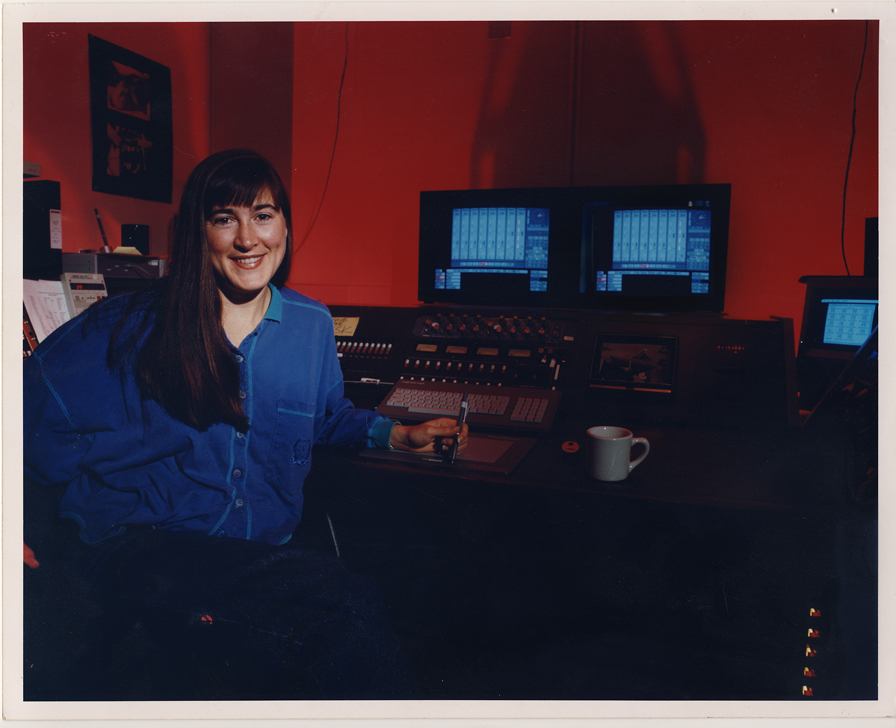
Thank you Lori for creating the soundtrack to my life!
Discover more from TWIN PEAKS BLOG
Subscribe to get the latest posts sent to your email.

